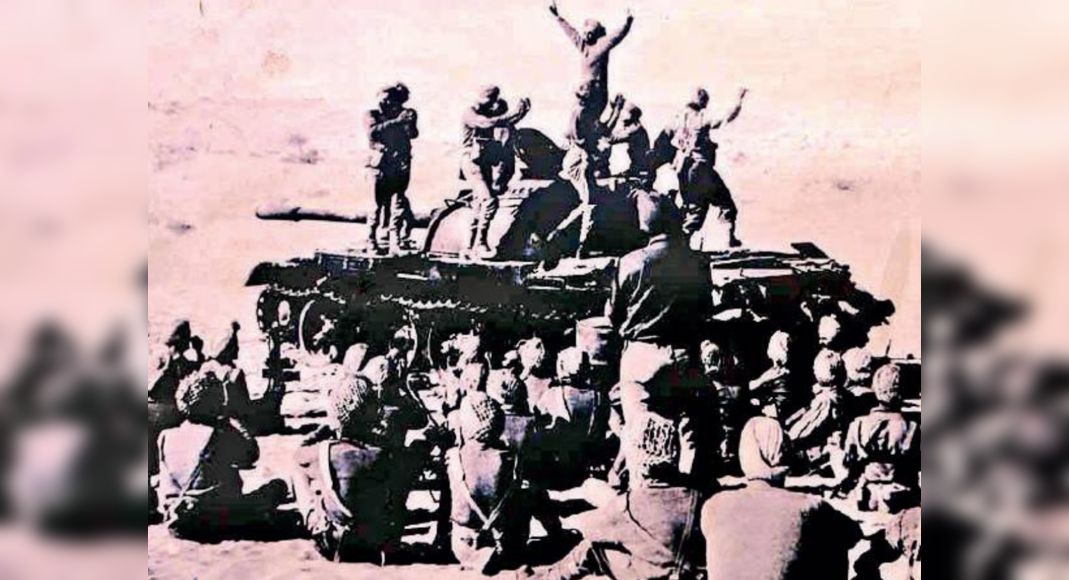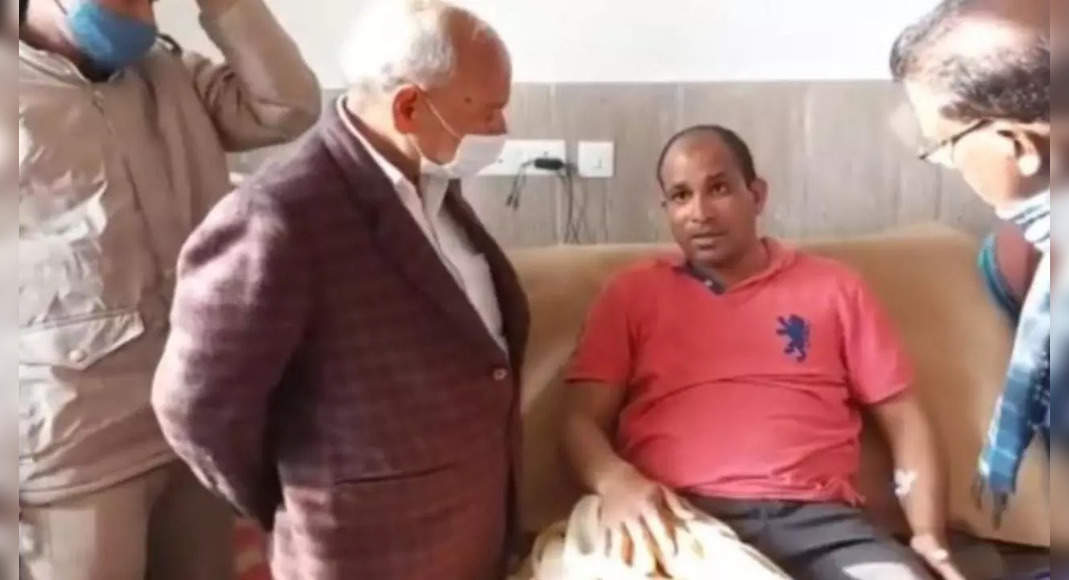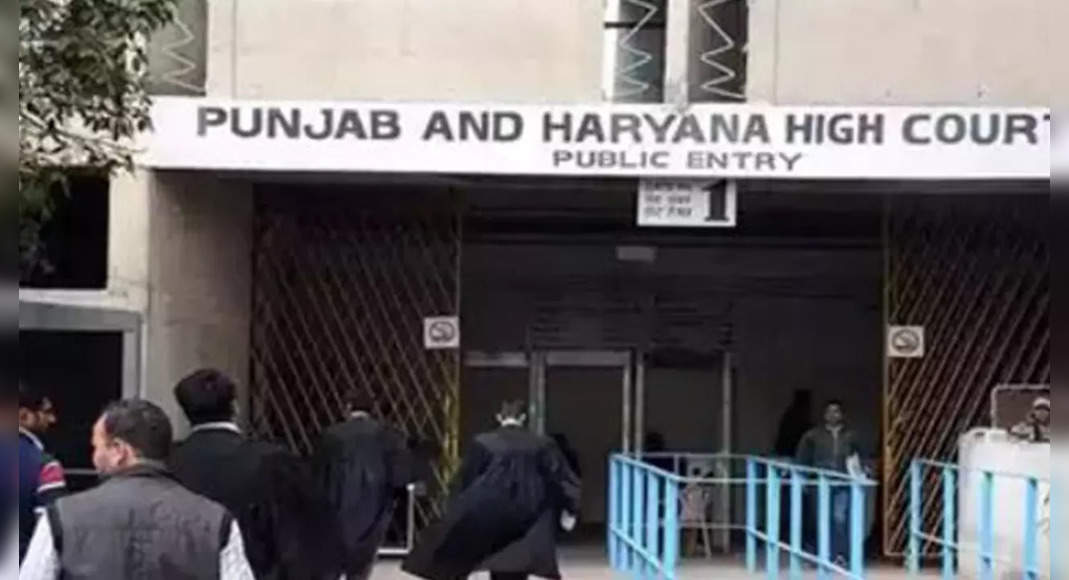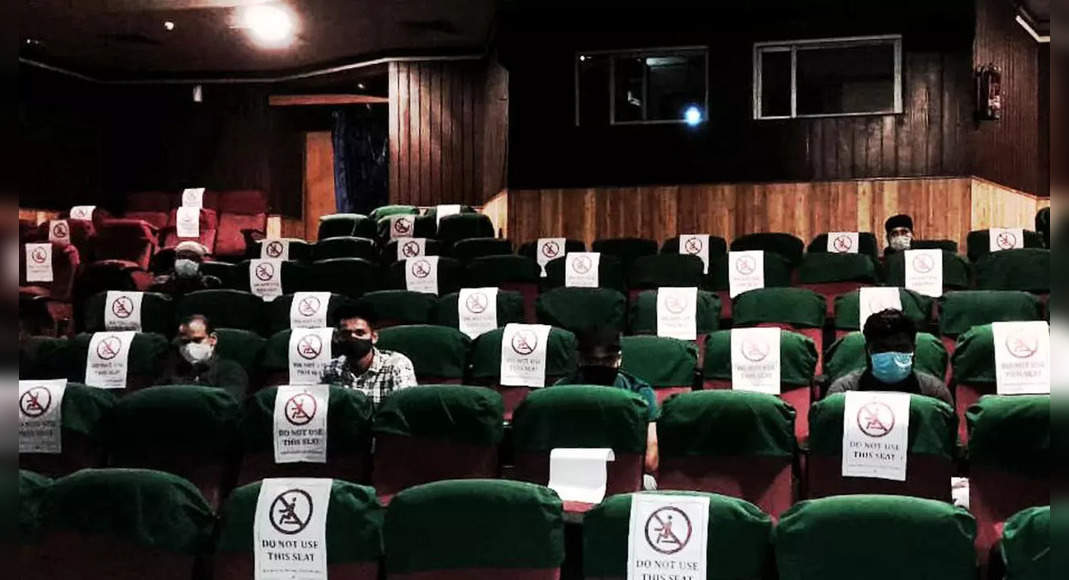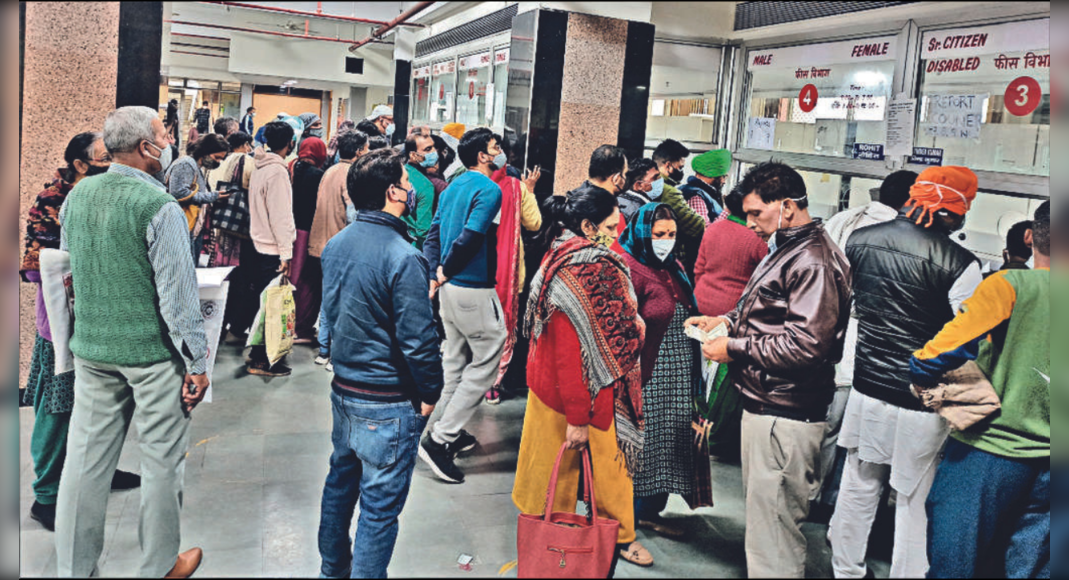CHANDIGARH: Surinder Kaur Chandpuri, widow of Longewala battle hero late Brig Kuldip Singh Chandpuri, was not even aware of where her husband was deployed during the 1971 Indo-Pak war.
Even the news about her husband’s heroism reached her through an All India Radio (AIR) broadcast.
“I only knew that his last place of deployment was in Rajasthan.
My father Baldev Singh, a police officer in Punjab, got to know from his Army connections that Brigadier Saheb, then a major, was somewhere in the western sector.
It was a difficult time; I would sit at home, not even talk to anybody and would simply keep on crying,” said Surinder, recalling her memories about the war.
Brig H S Chandpuri explains how the battle progressed to British Army Field Marshal R M CarverSurinder’s role was played by actor Tabu in the movie ‘Border’, which was made about the Battle of Longewala, whose defence was led by Brig Chandpuri.
Brig H S Chandpuri with ‘Border’ director J P Dutta and actor Sunny DeolSurinder, now in her late seventies, said she came to know about the beginning of the war on December 4, 1971, at the Nawanshahar bus stand, when she was going from her in-laws’ house in Saroa village to Chandigarh with her mother-in-law.
Personnel of the 23rd battalion of the Punjab Regiment interacting with then defence minister Jagjivan Ram“I came to know at the bus stand that the war had started.
I told my mother-in-law about it on reaching Chandigarh,” she added.
This temple maintained by the BSF survived Pakistani onslaughtShe said a “jyotishi” (astrologer) who was a family friend came incidentally to their home during the war and assured her of Major Chandpuri’s return home unscathed and of being honoured and celebrated after the war.
“I was still not satisfied and brushed everything aside, not knowing that panditji’s prophecy would be true,” said Surinder.
Kaur said she came to know of her husband being awarded the country’s second highest gallantry award, Maha Vir Chakra (MVC), also through the radio.
“My father heard about gallantry awardees on AIR.
Initially, he did not inform me, as there was some confusion because some awards were announced posthumously.
It was only after confirmation he told us about it,” she added.
Surinder recalled how her husband was welcomed by the deputy commissioner (DC) of Hoshiarpur and they were all taken in a huge caravan of vehicles from Garhshankar to their native village.
Surinder described Brig Chandpuri, who died in November 2018, as a “very honest, simple person who would stand up for everything right”.
“He always gave the credit of winning the battle to his troops and the Indian Air Forc.
He looked after his soldiers like his own children.
They still come to our home and remember the days they spent with him,” said Kaur with moist eyes.
Brig Chandpuri was married to Surinder Kaur in 1967 and the couple have three sons.
CONVERSATIONS WITH A WAR HEROJ P DUTTA WAITED FOR 25 YEARS TO MAKE BORDERDuring his last interaction, before his death, with TOI at his Sector 33 Chandigarh residence, Brig Chandpuri revealed that filmmaker J P Dutta waited for 25 years to make the film ‘Border’ on Longewala battle.
Delving into unknown aspects of the iconic film and battle, Brig Chandpuri said the story of Longewala was narrated to the Dutta family immediately after the war by J P Dutta’s brother, Squadron Leader Deepak Dutta, who fought in the 1971 war.
“Deepak told J P Dutta and his family at their Mumbai house about the remarkable story of Longewala, where 120 men led by Major Chandpuri saved a strategically important post, fighting a 3,000-strong assault force of the Pakistan Army.
Later, Deepak died flying the newly-inducted MIG during the conversion of Hunter aircraft to MIG in the IAF,” Chandpuri had told TOI.
Deepak Dutta was a Flight Lieutenant at the time of the 1971 war and he held the rank of Squadron Leader at the time of his death.
Chandpuri had said that after his brother’s death, J P Dutta decided to make a film based on the battle.
But, he had to wait because the Official Secrets Act forbids sharing of details of war for 25 years.
Overwhelmed by the bravery shown by the men on the border, Dutta waited.
In 1996, he finally got permission from the ministry of defence (MoD) and made the film, Chandpuri had told TOI.
Chandpuri had agreed because Dutta wanted to fulfil the dream of his late brother, a war veteran himself HOW DID HE MOTIVATE HIS TROOPS?In his last interaction with TOI before his demise, Brig Chandpuri recalled Field Marshal R M Carver, the British general who became the UK army chief and then the chief of defence staff, who visited the site which had witnessed such heroism.
Chandpuri said he wanted to know what motivated him to stay put even after seeing the substantial size of Pakistan troops moving towards the post and how he kept his troops motivated.
To the first question, Chandpuri replied, “Sir, I was given a task in writing and I had to complete it until changes were received from the Army in writing.
I just executed what I was asked to do by my seniors.” As for how he had kept his men motivated, Chandpuri, then a young Major, said, “I just told them about the sacrifices made by the armed forces and the Sikh community, especially Guru Gobind Singh, as most of the troops were from Punjab.
I told my jawans that I would not leave the post and anyone willing to go could leave.
They relied on me and we managed to hold the post till the arrival of the IAF” IAF MADE TIMELY ENTRYBrig Chandpuri remembered the timely entry of the Indian Air Force during the battle of Longewala.
They came when they were needed the most, said the war veteran.
According to Chandpuri, initially, IAF pilots were conducting sorties but not firing on Pakistan tanks.
When he asked headquarters for the reason, he was told that the IAF pilots could not distinguish between Indian and Pakistani tanks.
“I told them we had not deployed any tanks and all the tanks visible to the pilots belong to Pakistan.
Then, the IAF destroyed most of the Pakistan forces in a short time,” he had said.
This was the first time that the IAF fought in close coordination with the Army to win a historical battle and save a strategically important post, the decorated veteran had told TOI BATTLE OF LONGEWALAThe Battle of Longewala, dated December 5-6, 1971, was one of the first major battles in the western sector.
A company of 120 soldiers of the 23rd battalion of the Punjab Regiment, led by late Brig Chandpuri, then a Major, managed to hold off around 3,000 troops of the 51st Infantry Brigade of the Pakistani Army, backed by the 22nd Armoured Regiment, for two days.
Thereafter, the IAF arrived to thwart the Pakistani assault WANTED TO DIE BY OWN HANDDuring the battle, Brig Chandpuri had kept a loaded carbine with him.
He intended to use it to shoot himself if he was captured by the Pakistani troops.
“I decided to die on my own rather than becoming a prisoner of war”, Brig Chandpuri had said MIRACLE OF THE TEMPLE When the war broke out, the Army took over the Longewala post from the Border Security Force (BSF).
During the handing over ceremony, a BSF inspector hesitantly requested Brig Chandpuri to look after a small temple maintained by them.
He was afraid Sikh soldiers would not take care of a Hindu temple, Brig Chandpuri had told TOI.
“I told him that the Army had taught us to hold all religions in high esteem.
I immediately deployed a havildar of my company to maintain the temple.
Even heavy shelling from Pakistan could not damage the temple.
I still believe it has miraculous powers and saved my troops,” Brig Chandpuri had said.
The war veteran used to visit the temple even after his retirement

